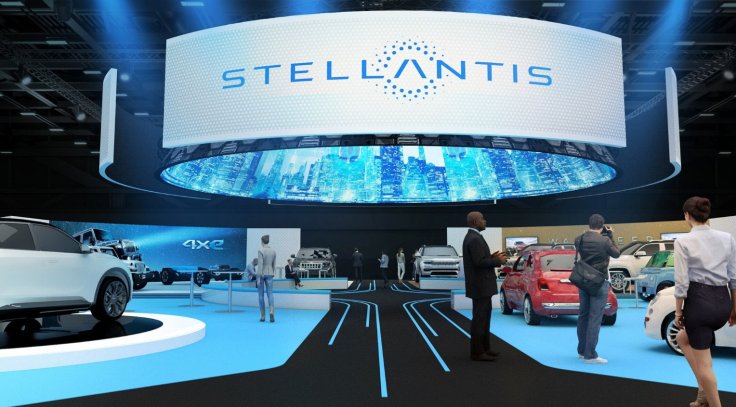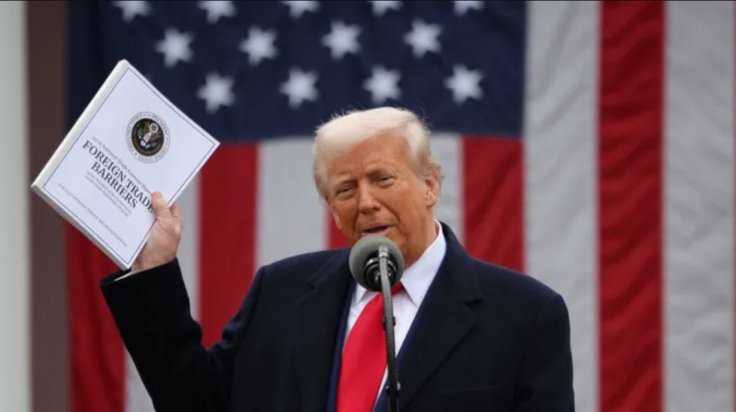Stellantis said on Thursday that it was temporarily laying off 900 employees across five U.S. locations following President Donald Trump's tariff announcement. The automaker also said that it is suspending all its operations at an assembly plant in Mexico and another in Canada for the time being.
Stellantis, the parent company of brands like Ram, Dodge, Jeep, and Chrysler, said that the affected U.S. facilities are powertrain and stamping plants that supply components to the two factories in Mexico and Canada that are being shut down temporarily. This marks the most dramatic shift linked to Trump's car tariff policies as carmakers brace for a tough time in the coming months.
Carmakers Feel Immediate Heat

Automakers importing vehicles from all countries, including key trade partners like Mexico and Canada, will now face a 25 percent import tax on all cars. Industry experts believe that these tariffs will ultimately be passed on to consumers, driving up the cost of both vehicles and parts.
The policy delivers a major blow to the auto industry, which has already been struggling to keep prices affordable amid inflation concerns affecting American buyers.
Meanwhile, Stellantis—having recently appointed John Elkann as CEO following the removal of their previous leader—has suffered a sharp decline in sales due to pricing challenges.
Stellantis reported a steep 70 percent decline in profits for 2024.
On Thursday morning, the company's stock plummeted 7.2 percent to $10.45 in New York trading, mirroring a broader downturn in U.S. stocks amid growing fears of a full-scale trade war.
The automaker announced that its Windsor Assembly Plant in Canada, which produces the Chrysler Pacifica, Voyager minivans, and Dodge Charger Daytona, will halt operations for two weeks. Meanwhile, the Toluca Assembly Plant in Mexico, where the Jeep Compass and Jeep Wagoneer S are manufactured, will remain idle throughout April.
This temporary shutdown will affect nearly 4,500 Canadian employees at the Windsor facility.
Running Out of Fuel

At the Toluca plant, workers will still report to their jobs and receive paychecks but will not be actively assembling vehicles, the company confirmed. The automotive industry is scrambling to adjust to the new 25 percent import tariff on foreign-made vehicles, which officially took effect on Thursday.
Previously, the base U.S. tariff rate for automotive imports stood at 2.5 percent.
Automakers bringing vehicles from Canada or Mexico will have the option to deduct the cost of U.S.-made parts from the 25 percent tariff.
In a letter sent to employees on Thursday morning, Antonio Filosa, Stellantis' Chief Operating Officer for the Americas, said, "he company is 'continuing to assess the medium- and long-term effects of these tariffs on our operations, but also have decided to take some immediate actions, including temporarily pausing production at some of our Canadian and Mexican assembly plants.
"Those actions will impact some employees at several of our US powertrain and stamping facilities that support those operations."
Back in February, Stellantis announced a halt on development for its next-generation Jeep Compass compact SUV, including the planned retooling of Brampton Assembly in Canada, which was set to produce the vehicle.
On Thursday, United Auto Workers President Shawn Fain slammed the company's actions, saying that "Stellantis continues to play games with workers' lives."
"As we've shown time and again, they've got the money, the capacity, the product, and the workforce to employ thousands more UAW members in Michigan, Indiana, and beyond. These layoffs are a completely unnecessary choice that the company is making."









